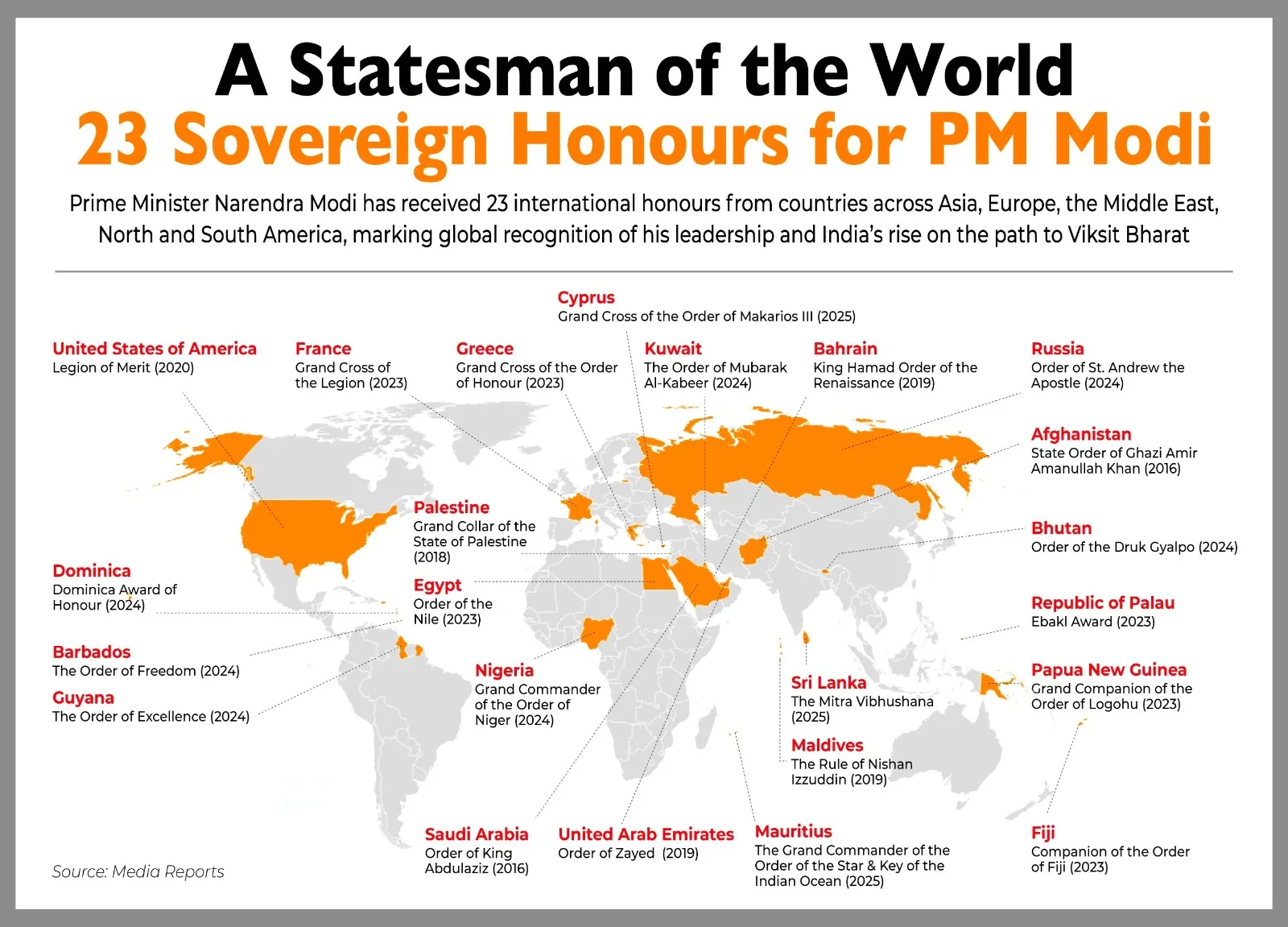Context:
Prime Minister Narendra Modi’s recent visit to Cyprus marks a notable shift in India’s foreign policy engagement with the Eastern Mediterranean. It is the first such visit by an Indian Prime Minister in over two decades and carries far-reaching diplomatic, strategic, and economic implications.
Key highlights of the Visit:
This visit is only the third by an Indian Prime Minister to Cyprus in four decades, following Indira Gandhi (1982) and Atal Bihari Vajpayee (2002). Modi’s outreach signals renewed intent to deepen bilateral ties, elevating Cyprus in India's diplomatic calculus.
Geopolitical Signal to Turkey and Pakistan: The visit gains added strategic weight against the backdrop of Operation Sindoor and Turkey’s vocal support for Pakistan. Ankara’s position, especially following the April 22 Pahalgam terror attack, triggered widespread disapproval in India.
· Cyprus, by contrast, condemned the act and promised to escalate the issue of cross-border terrorism within EU forums.
· Modi’s presence in Nicosia can be interpreted as a counterbalance to Turkish influence and a reaffirmation of solidarity with Cyprus in its territorial conflict with Turkey over Northern Cyprus.
Significance of Cyprus:
Despite its Asian geography, Cyprus is a member of the European Union. Its strategic location in the Eastern Mediterranean—proximate to Turkey, Syria, and the Middle East—makes it a valuable node for India's ambitions in European markets.
· The opening of an office by Eurobank, one of Cyprus’s largest financial institutions, in Mumbai signals increasing financial and commercial synergies.
· India-Middle East-Europe Economic Corridor (IMEC): Cyprus features prominently in the proposed India-Middle East-Europe Economic Corridor (IMEC), which aims to enhance connectivity and trade between Asia and Europe. Modi’s visit aims to cement Cyprus’s role in this infrastructure and economic initiative, potentially offering India a stable Mediterranean partner for logistical and maritime access.
· Supporting India-EU Negotiations: Cyprus is slated to hold the presidency of the EU Council in 2026. With India pushing to conclude its Free Trade Agreement (FTA) negotiations with the EU by the end of 2025, Cyprus could serve as a strategic ally in advancing India’s interests.
· Energy and Natural Gas Cooperation: Cyprus is actively exploring offshore natural gas in the geopolitically tense Eastern Mediterranean, where Turkish claims and military activity persist. India, aiming to diversify energy sources, sees Cyprus as a key partner in natural gas extraction and infrastructure.
· Investment and Taxation Framework: Cyprus is a significant source of foreign direct investment (FDI) into India and benefits from a Double Taxation Avoidance Agreement (DTAA) that facilitates smoother financial flows.
About the Grand Cross of the Order of Makarios III:
PM Modi was also awarded the Grand Cross of the Order of Makarios III, Cyprus’s highest civilian honour during the visit. The award recognizes global leaders for outstanding contributions to diplomacy, peace, and human values.
Conclusion:
Prime Minister Modi’s visit to Cyprus goes beyond symbolism, reflecting India’s strategic outreach to smaller yet crucial states. It signals disapproval of the Turkey-Pakistan axis while positioning Cyprus as a key partner in India’s EU and Mediterranean strategy.







